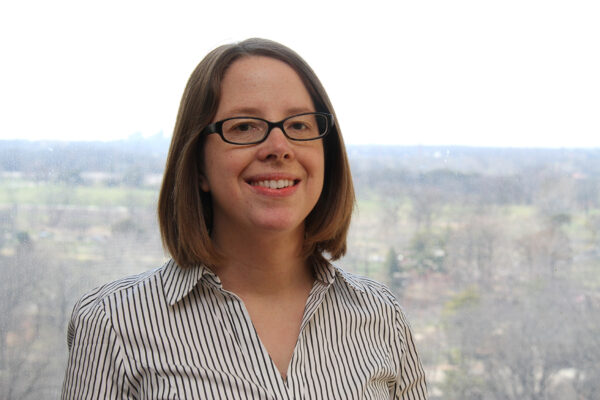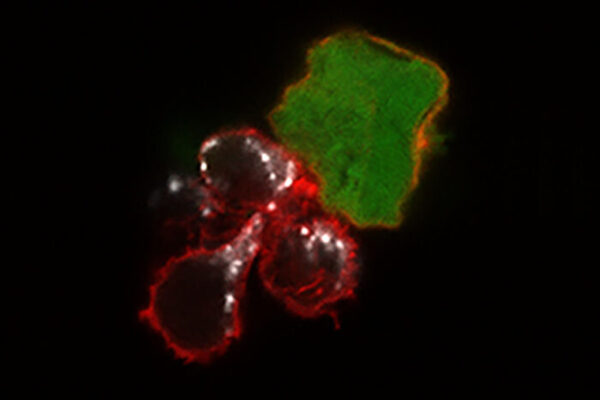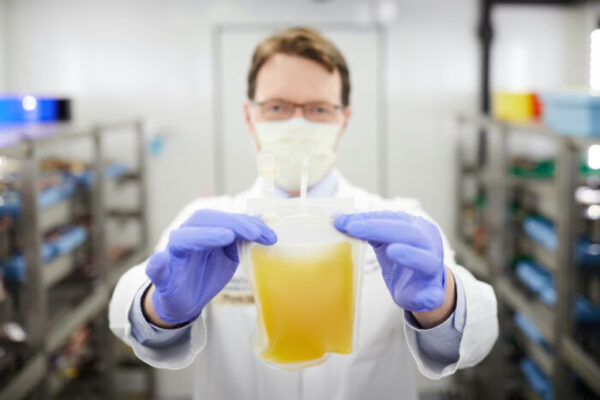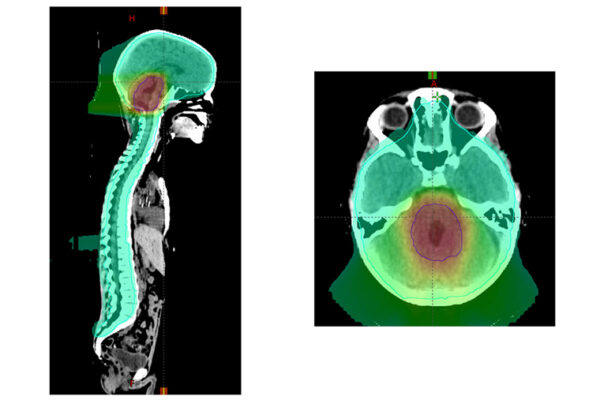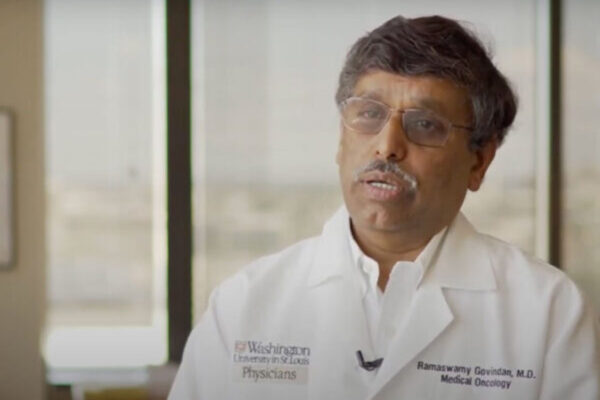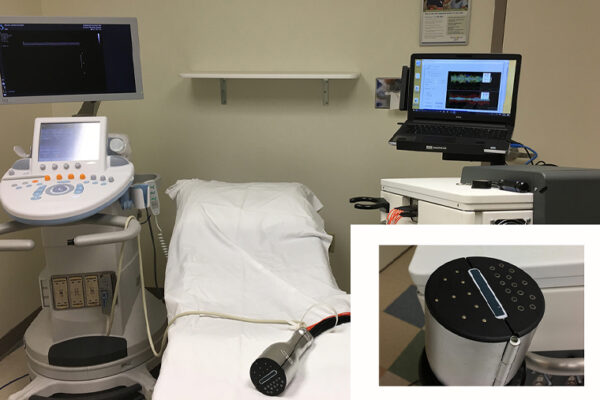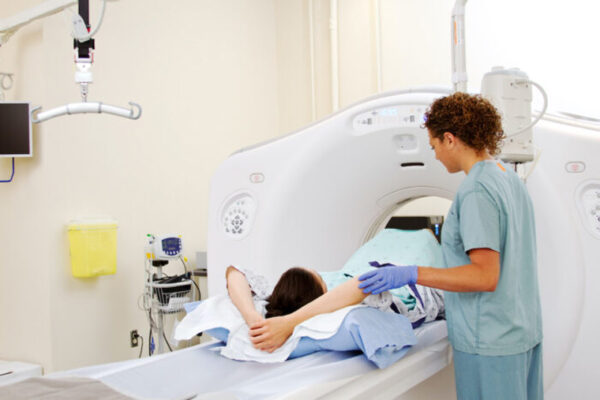Distance from hospital impacts cancer diagnosis, survival in young adults
Adolescents and young adults living in rural versus metropolitan U.S. counties and those living farther from the hospital where they were diagnosed generally have worse outcomes than those living in metropolitan counties and closer to the reporting hospital, finds a new study from the Brown School.
Researcher wins funding toward treating multiple myeloma
Julie O’Neal, assistant professor of medicine at the School of Medicine, received a $250,000 award from the International Myeloma Society. The award will be used to develop novel immunotherapy treatments for multiple myeloma, a common blood cancer.
Cell-based immunotherapy shows promise against melanoma
Researchers at Washington University School of Medicine have shown in preclinical studies that a natural killer cell-based immunotherapy could be effective against solid tumors such as melanoma.
Bergom honored by Radiation Research Society
Carmen R. Bergom, MD, PhD, associate professor of radiation oncology at the School of Medicine, will receive the 2021 Michael Fry Research Award from the Radiation Research Society. The annual award recognizes a junior scientist who has made extraordinary contributions to the field of radiation research.
Blood cancer patients with COVID-19 fare better with convalescent plasma
Jeffrey P. Henderson, MD, PhD, at Washington University School of Medicine, is an author on a new study that shows that convalescent plasma from recovered COVID-19 patients can dramatically increase the likelihood of survival for blood cancer patients hospitalized with COVID-19.
Study sheds light on treatment options for devastating childhood brain cancer
A new study led by Washington University School of Medicine provides new guidance on the treatment of medulloblastoma, a pediatric brain cancer. Some aspects of radiation therapy may be reduced while still providing effective treatment.
Newly approved drug effective against lung cancer caused by genetic mutation
The new drug sotorasib reduces tumor size and shows promise in improving survival among patients with lung tumors caused by a specific DNA mutation, according to results of a global phase 2 clinical trial. The study is led by scientists at the School of Medicine and other institutions.
New method predicts chemotherapy effectiveness after one treatment
An interdisciplinary team at Washington University finds that combining certain data after a patient’s first treatment can predict how a breast cancer tumor is responding to chemotherapy.
Delaying lung cancer surgery associated with higher risk of recurrence, death
New research from Washington University School of Medicine has found that postponing lung cancer surgery for more than 12 weeks from the date of diagnosis with a CT scan is associated with a higher risk of recurrence and death.
Brain tumors caused by normal neuron activity in mice predisposed to such tumors
Researchers at Washington University School of Medicine and Stanford University have found that normal exposure to light can drive the formation and growth of optic nerve tumors in mice — and maybe people — with a genetic predisposition. Such tumors can lead to vision loss.
Older Stories

